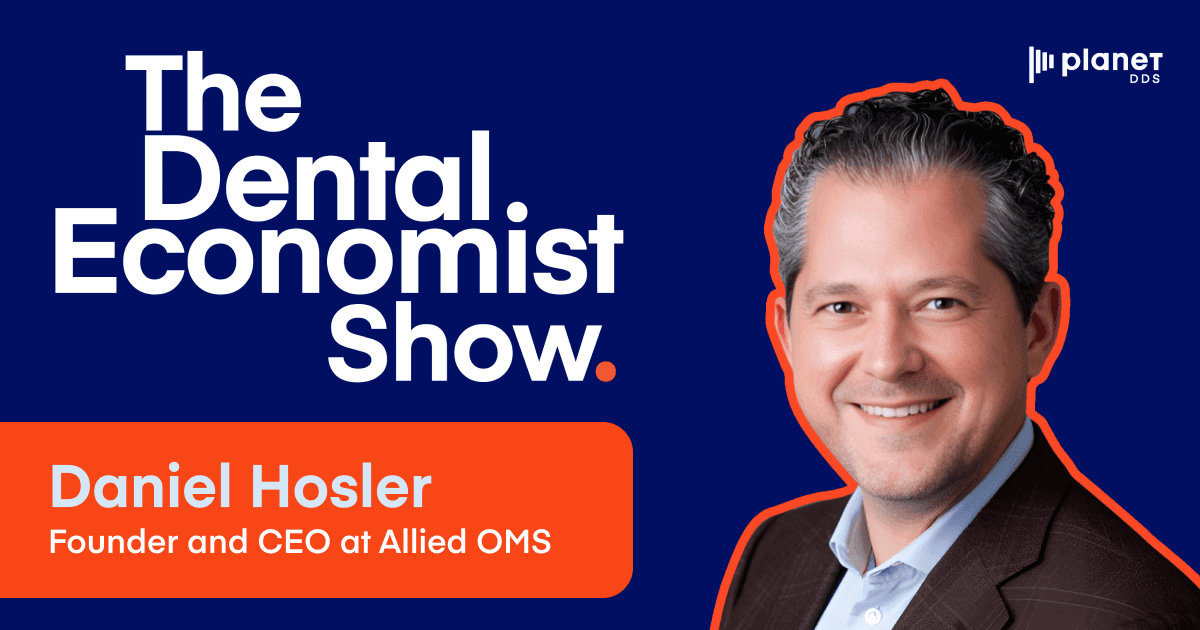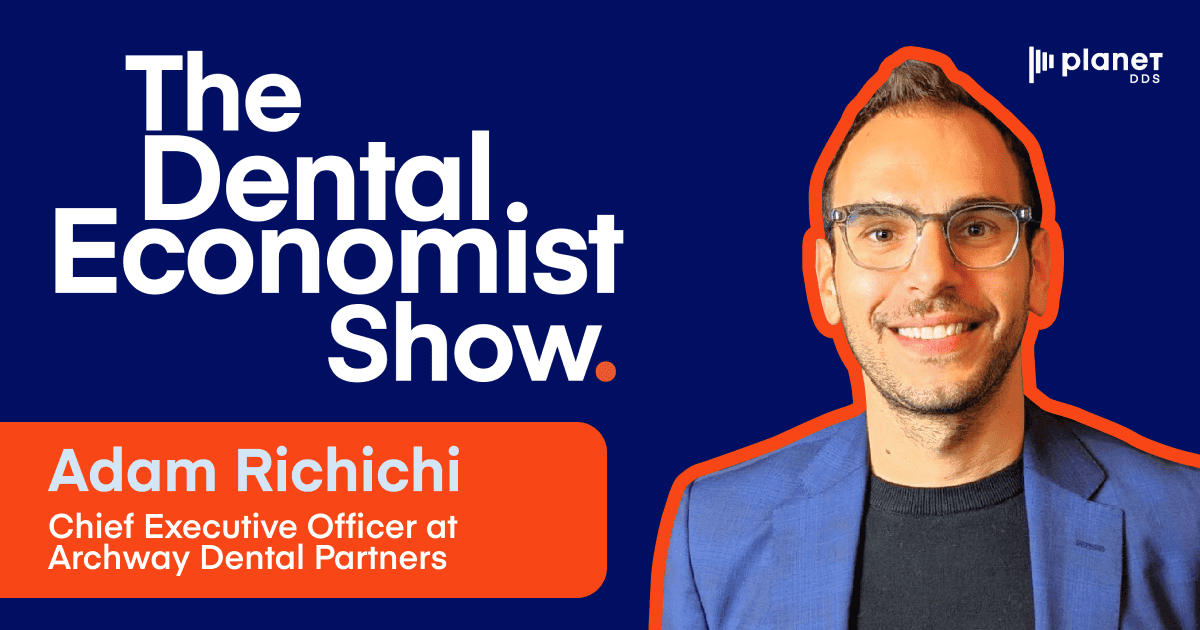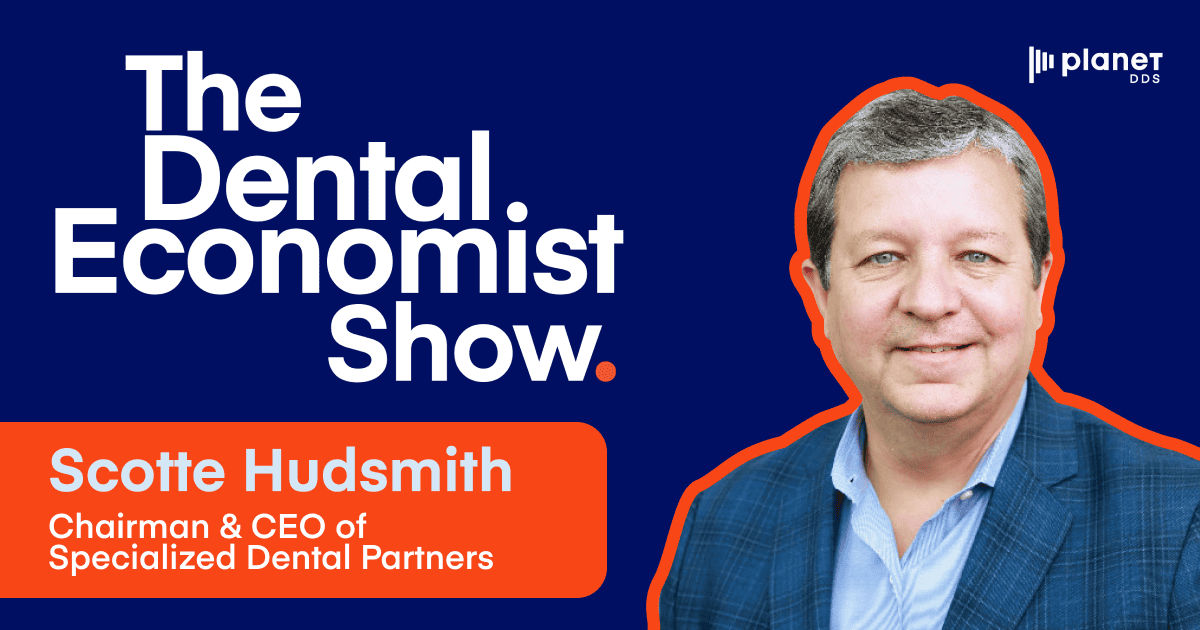Dan Hosler on Blending Private Dental Practices with Private Equity

In this episode of The Dental Economist Show, host CRO Mike Huffaker of Planet DDS sits down with Dan Hosler, CEO and co-founder of Allied OMS to talk about private dental practices and equity. Join them as they discuss providing better economic opportunities for doctors and the importance of agility in a changing business landscape.
Join them as they discuss:
- Maintaining a robust patient communication cadence
- Consolidation in the dental industry
- The importance of open and honest dialogue within the organization
- Blending private dental businesses with private equity
- Providing better economic opportunities for doctors
- The importance of agility in a changing business landscape
About the Guest
Daniel is a managing partner at DuneGlass Capital, a private equity investment firm that specializes in providing growth capital to lower-middle-market healthcare companies. At DuneGlass Capital, he is a co-lead and chair of the investment committee, responsible for driving the vision of the firm’s thematic investments. Daniel is also the CEO of Allied OMS, a doctor-led, doctor-owned medical private equity firm.
Episode Highlights
Get takes on blending private dental businesses with private equity, providing better economic opportunities for doctors, and the importance of agility in a changing business landscape highlighted in this episode:
The importance of doctor leadership and ownership
Daniel Hosler says that his firm takes an alternative approach to the traditional private equity model, suggesting they provide “better or more equitable sharing of the economics.” He highlights how lenders and equity investors seek risk diversification, which comes from consolidation, centralized services, better cash flow management, and cost reduction. By involving doctors directly in improving the business, they share the benefits of these strategies. The idea is that if doctors contribute to these improvements, they should also share in the financial success, resulting in a stronger alignment of goals between the doctors and the firm.
Considerations for new partners
Hosler explains that when doctors are considering partnering with private equity they should understand what it means to be an investor. One aspect of this is understanding how much debt is outstanding, the different types of debt, and why all debt is not necessarily bad. Daniel adds that doctors should also ask about stock ownership. Allied OMS has seven doctor-led committees, giving doctors a significant role in shaping the business. This involvement allows them to exercise their strengths, maintain clinical autonomy, and engage in business decisions like recruitment, new office openings, and adopting new technologies.
Plans for the future
Hosler plans for significant growth in the next four to five years, and wants to triple or quadruple the size of the business. This involves focusing on continuing to invest in the company culture, making sure that they are training people about what they stand for, and making sure to “fire fast.” Hosler says that if they made a hiring decision that was not the right fit for the company, they need to be able to move on quickly. He emphasizes that if they take great care of their doctors, the doctors will take great care of patients. When this is the case, Hosler doesn’t worry about KPIs or counting every penny.
Pathways for new oral surgeons
Discussing whether a new surgeon could use DuneGlass Capital for creating a new practice, or it’s more tailored toward pre-existing practices that are looking to expand, Hosler says that it depends on understanding the doctor’s goals for the following five years. Instead of leading with a sales pitch over dinner, they focus on educating young doctors on areas that might have been overlooked in dental school, such as gross production and net production, collections rates, and KPIs. Daniel boils their approach to “having that dialogue to teach them about all of the different opportunities that are in front of them.”



